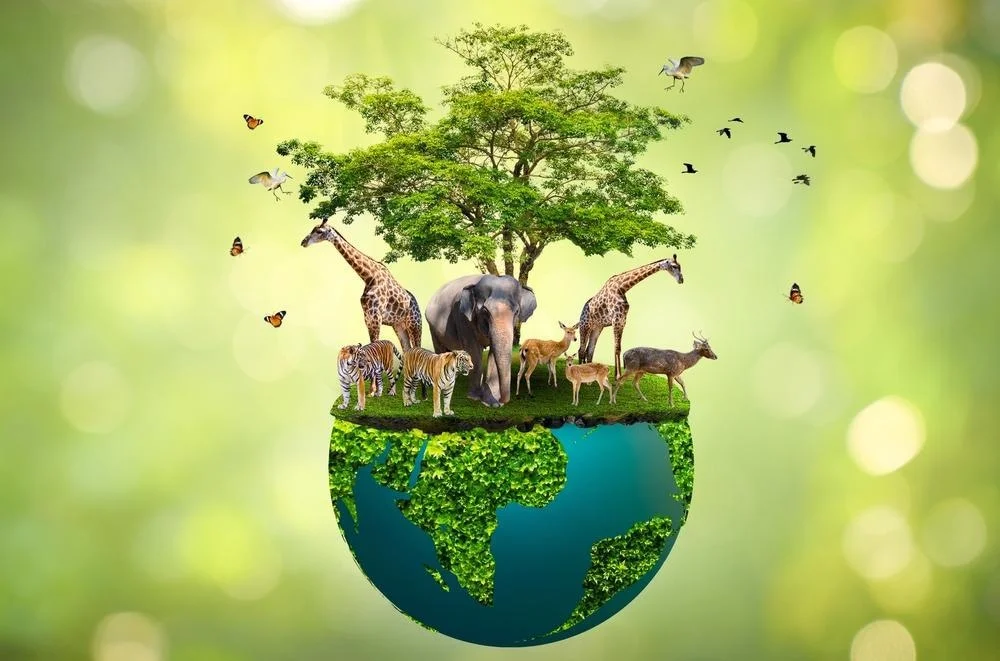Reduce, Reuse, Recycle
The 3Rs—Reduce, Reuse, Recycle—are fundamental principles of waste management. By reducing the amount of waste we produce, reusing items whenever possible, and recycling materials, we can significantly decrease the volume of waste that ends up in landfills. This not only conserves resources but also reduces pollution.
- Recycle: Sort your waste properly and ensure that recyclable materials like paper, glass, and plastic are processed correctly.
- Reduce: Cut down on single-use plastics and unnecessary packaging.
- Reuse: Opt for reusable bags, bottles, and containers.

Conserve Water
Water is one of our most precious resources, and conserving it is essential. Simple habits like fixing leaks, taking shorter showers, and using water-saving appliances can help reduce water waste. Additionally, consider installing rainwater harvesting systems to collect and use rainwater for gardening and other non-potable purposes.
- Tip: Turn off the tap while brushing your teeth or washing dishes to save gallons of water each day.
Use Energy Efficiently
Energy consumption is a major contributor to environmental degradation, particularly when it comes from non-renewable sources like fossil fuels. By using energy more efficiently, we can reduce our carbon footprint and save money on utility bills.
- Switch to LED bulbs: They use up to 80% less energy than traditional incandescent bulbs.
- Unplug devices: When not in use, unplug electronics to avoid phantom energy consumption.
- Consider renewable energy: Solar panels and wind turbines are excellent options for reducing reliance on fossil fuels.
Support Sustainable Products
Choosing products made from sustainable materials helps reduce environmental impact. Look for items that are made from recycled materials, are biodegradable, or have been produced using eco-friendly methods. Supporting companies that prioritize sustainability can drive positive change in industries.
- Examples: Bamboo toothbrushes, organic clothing, and eco-friendly cleaning products.
Plant Trees and Gardens
Trees are vital to our planet’s health—they absorb carbon dioxide, provide oxygen, and support biodiversity. Planting trees and maintaining gardens can enhance local ecosystems, provide habitats for wildlife, and improve air quality.
- Get involved: Participate in community tree-planting events or start a garden in your backyard.
Reduce Vehicle Use
Transportation is a significant source of greenhouse gas emissions. Reducing your vehicle use can have a profound impact on the environment. Consider walking, biking, or using public transport instead of driving. Carpooling is another effective way to lower your carbon footprint.
- Bonus: Walking or biking is not only good for the environment but also great for your health!
Protect Wildlife
Wildlife plays a crucial role in maintaining balanced ecosystems. Protecting wildlife means preserving their natural habitats and avoiding activities that harm them. Support conservation efforts and choose products that don’t contribute to the destruction of habitats.
- Be mindful: Avoid buying products made from endangered species or that contribute to deforestation.
Spread Awareness
Education is key to driving environmental change. By spreading awareness about the importance of protecting the environment, you can inspire others to take action. Share tips, resources, and your own experiences with friends, family, and your community.
- Engage: Host workshops, participate in local environmental groups, or simply share information on social media.
Conclusion
Protecting the environment is not just the responsibility of governments or large corporations—it’s something we can all contribute to. Every small action, from recycling a plastic bottle to planting a tree, adds up to a larger impact. By making conscious choices in our daily lives, we can help create a sustainable future for ourselves and generations to come. Remember, the Earth is our home, and it’s up to us to take care of it.